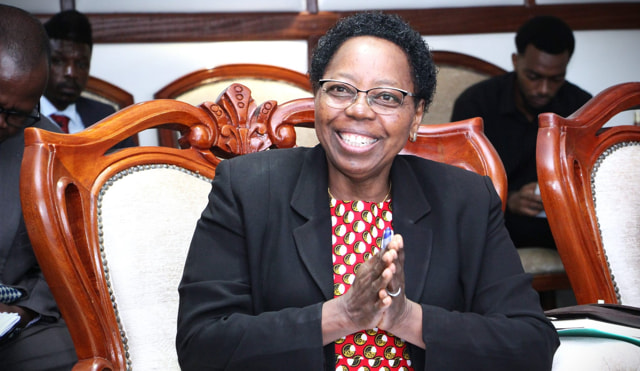STATEMENT ON OBSERVANCE OF THE 2024 DAY OF THE AFRICAN CHILD
The National Gender and Equality Commission joins Kenya and the African continent in commemorating the Day of the African Child (DAC), 2024. The day is marked every year on the 16th day of June. This day seeks to honor the memory of the children who participated in the Soweto Uprising of 1976 and raises awareness about the continuing need for improvement in the education provided to African children. The theme for this year’s DAC is “Education for all Children in Africa: The Time is Now”.
Education is a fundamental human right and a driver of economic and social development. Article 26 of the Universal Declaration of Human Rights declares education as an inalienable human right (UN, 1948), essential for the realization of other rights. The United Nations' Sustainable Development Goal No. 4 calls for inclusive and equitable quality education and the promotion of lifelong learning opportunities for all. The African Charter on the Rights and Welfare of the Child asserts that every child has the right to education. However, statistics from UNESCO reveal that 20% of children aged 6-11, 30% of children aged 12-14, and 60% of those aged 15-17 are out of school in Africa. Barriers such as poverty, gender discrimination, conflict, and lack of infrastructure continue to hinder access to quality education. Girls, in particular, face disproportionate challenges, including early marriage, cultural biases, and inadequate sanitation facilities in schools, leading to higher dropout rates.
Kenya has made tremendous efforts to enhance the quality and access to education for all children. This commitment is reflected in various policy and legislative frameworks, including The Constitution of Kenya (2010), the Basic Education Act (2013), the Children Act (2022), the Early Childhood Education Act (2021), Kenya Vision 2030, and The National Education Sector Plan (2018-2022) among others. Kenya is also a signatory to various international Conventions and regional treaties promoting the right to education, including The Universal Declaration of Human Rights, Convention on the Rights of the Child, Convention on the Rights of Persons with Disabilities, and the African Charter on the Rights and Welfare of the Child.
Further, the government has implemented various reforms to improve the quality and access to education over the years. Examples include free primary and secondary education, the Kenya Education Sector Support Program, which supports the establishment of mobile schools and non-formal education centers in arid and semi-arid lands (ASALs), and the Nomadic Education Support program aimed at improving access to education for nomadic communities, investments in special needs education and improvement of school infrastructure among others. In 2017, the government introduced the Competency-Based Curriculum (CBC), aiming to provide a more holistic and practical approach to education.
The impact of these efforts is reflected in improved enrollment, retention, transition, and completion rates across the country. More children, regardless of their background, gender, or abilities, can now complete their education and transition to higher levels of learning. As we observe this important day, the National Gender and Equality Commission calls upon all stakeholders to sustain and amplify these efforts.
While the Commission applauds these efforts, we urge the government to support these reforms with dedicated budgetary commitments and to promptly address challenges related to infrastructure, continuous teacher training on the new curriculum, pedagogical and assessment methods, and sustaining the "keep-in-school" programs such as the school feeding. Additionally, the government should work to galvanize parental and community support for the CBC.
Kenya celebrates the Day of the African Child in the aftermath of the unprecedented flooding situation across the country. We appeal to the Government to ensure that the schools destroyed by the floods are reconstructed and the overall well-being of affected pupils assured.
The Commission assures all children, parents, caregivers, and teachers of its commitment to ensuring the promotion and protection of the rights of children in all spheres of life. Let us all work together to ensure that every child has access to quality education and the opportunity to reach their full potential.
Wishing you a successful Day of the African Child!
SIGNED
Dr. Joyce M. Mutinda, PhD, EBS
CHAIRPERSON


Comments